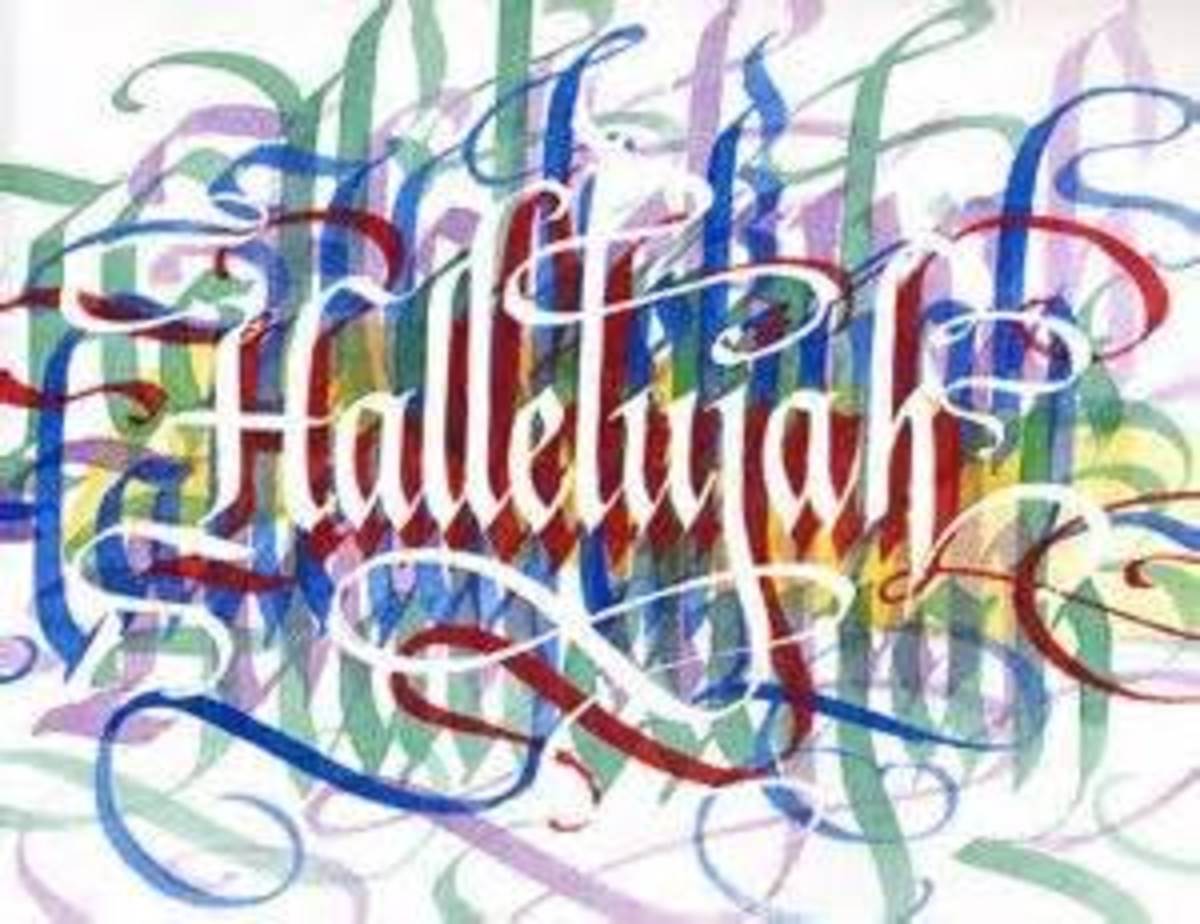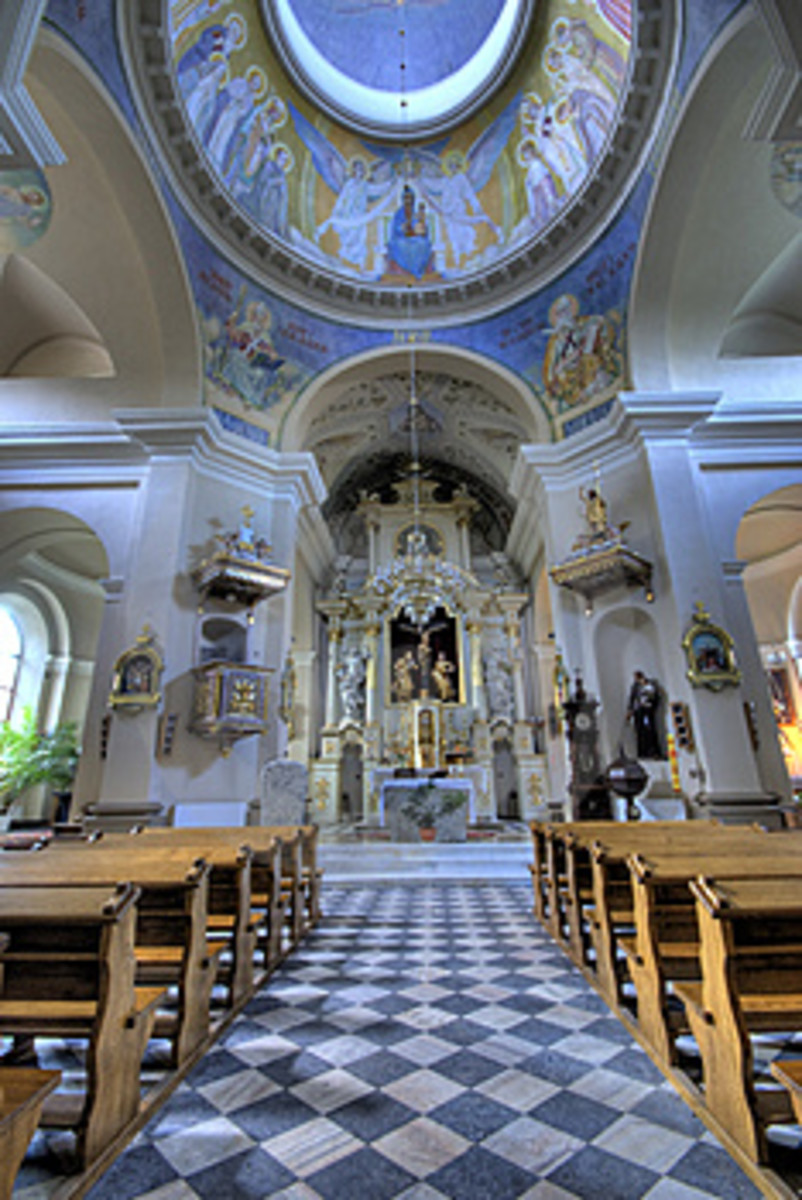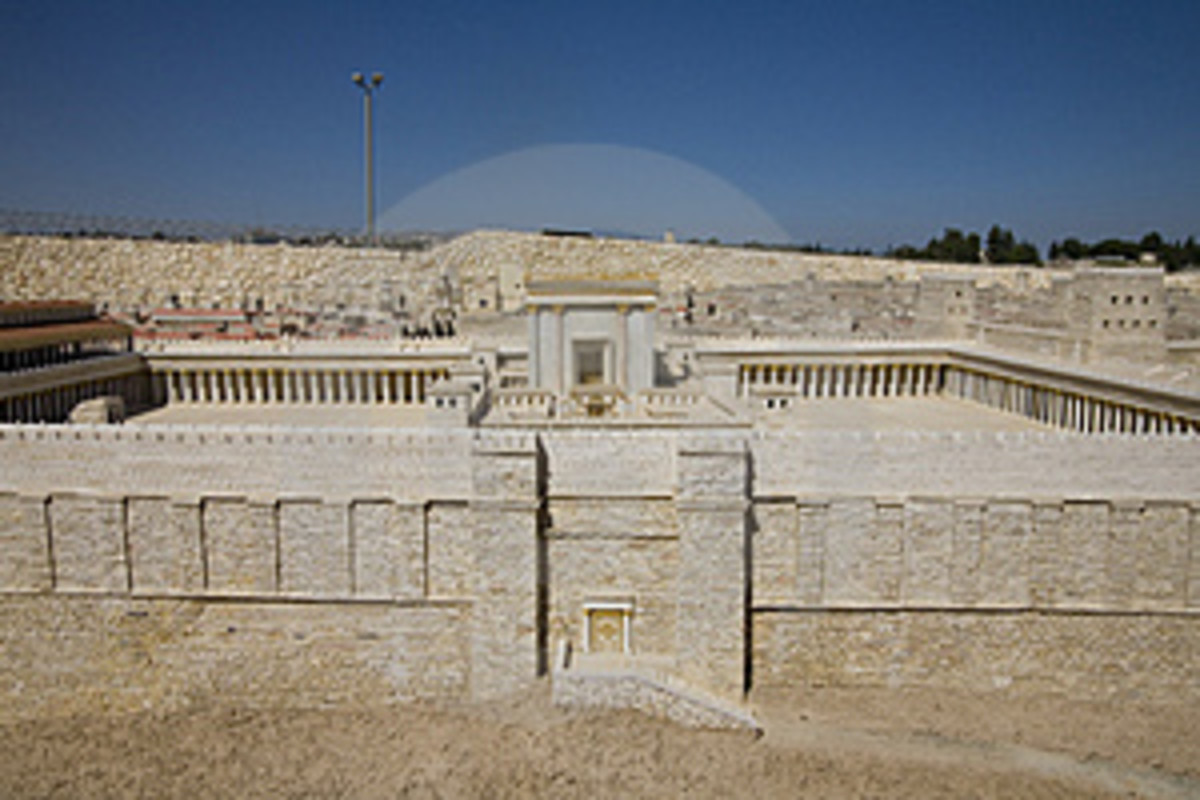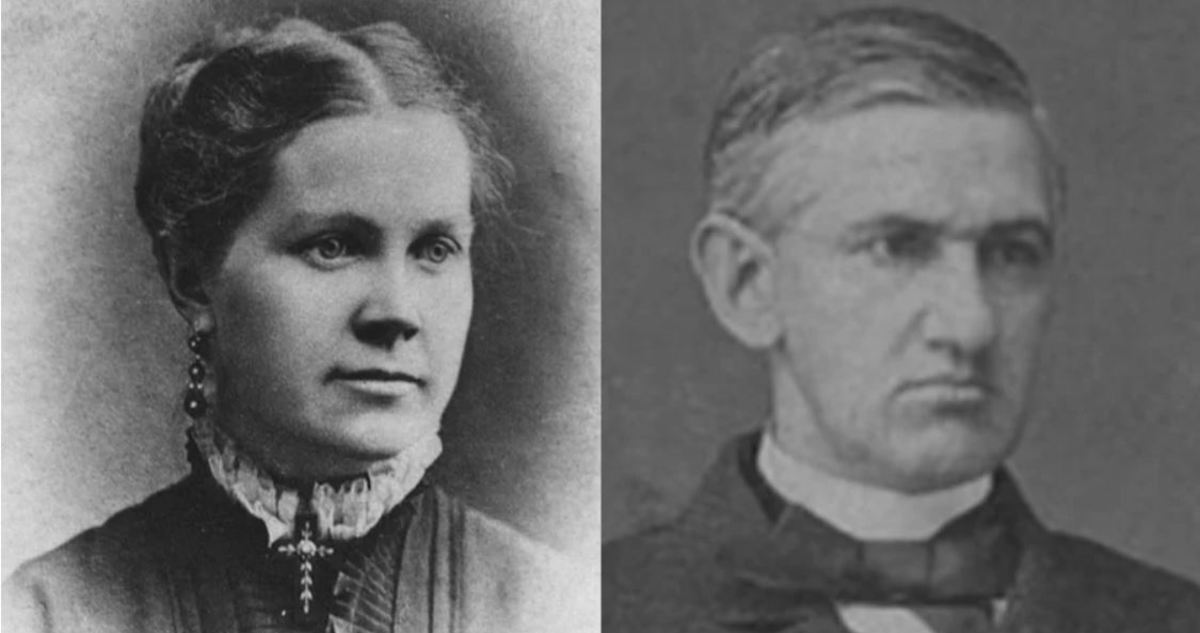Five Questions Answered
Pictures

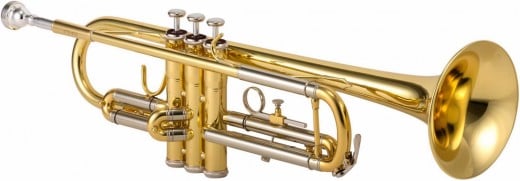
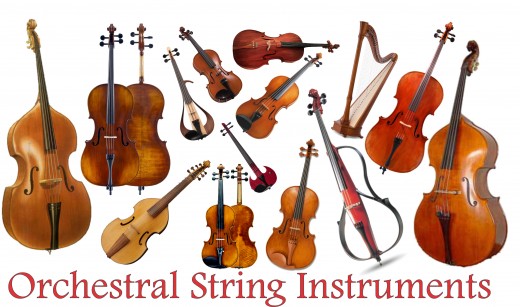


Five Questions Answered
Five Questions Answered
Introduction to The Book of Psalms
Online Wikipedia says, “the book of Psalms (sa:mz in Hebrew “ תְּהִלִּים”Tehillim “praises”) commonly referred to as “the Psalms” is the first book of Ketuvim (“writings”), the third section of the Hebrew Bible, and thus a book of Christian Old testament. The title is derived from the Greek translation “ψαλμοί, psalmoi,” meaning “instrumental music” and, by extension, “the words accompanying the music”. The book is anthology of individual Psalms, with 150 in the Jewish and western Christian tradition and more in the eastern Christian churches…. Psalms 151-155 and Psalms of Solomon were not in the bible.”
iBelieve.com says, “The root meaning of the word Psalms means “a melody of praise,” or “songs of praise,” and has been referred to as “the practice of singing to musical accompaniment or playing musical instruments.” The book of Psalms is like a hymnal written for worship services for God’s people.
Why Study (or Read) The Book of Psalms
This book, the Book of Psalms is one of the most beloved and probably the best-known portions of Holy Scripture. Its contents are read and sung by millions every day because it can bring students nearer to Yahweh and help them feel His love. Since the ancient times and up till now has it been a source of inspiration for worship to Jews and Christians. The book, which is a collection of Israel’s poetic hymns, praises, petitions, prayers can inspire students to trust God the more and have peace in him.
The book is a collection of 150 individual songs composed over a period of approximately 1000 years, from the time of Moses (Psalm 90) to the post-exilic period (Psalm 126). Readers of the book of Psalms will find the followings helpful.
1. Author and Time of Writing
David wrote 73 Psalms. They are mainly to be found in the first, second and fifth book. Twelve Psalms bear the name of Asaph, the conductor of David's choir of the temple (1 Chronicles 16:7; 2 Chronicles 29:30). Ten Psalms are written by the sons of Korah (Psalms 42; Psalms 44; Psalms 45; Psalms 46; Psalms 47; Psalms 48; Psalms 49; Psalms 84; Psalms 85; Psalms 87), two by Solomon (Psalms 72; Psalms 127), one each by Moses (Psalms 90), Ethan (Psalms 89) and Heman (Psalms 88). The remaining 50 Psalms bear no author's name.
However, the New Testament adds new dimension to the authorship by ascribing David’s name to Psalms 2 (Acts 4:25) and Psalms 95 (Hebrews 4:7) which thence makes the Psalms written by David to be 75 which is the exact half of the total chapters of the book of Psalms.
Readers of the bible should not be surprised by this, because David was a poet, instrumentalist, singer, musician, filled with the Spirit of the Living God that gives him the grace to navigate through the life issues without denying God.(1 Samuel 16:18; 18:10; 2 Samuel 1: 17-18; 6:5; 23:1-2; 1 Chronicles 6:31; 16:7; 25:1)
The oldest Psalms is probably Psalms 90, written by prophet Moses who lived in the 15th century BC. The compilations of these Psalms occurred during the days of King David who is presumably assumed to have introduced singing into the temple.
It is believed that multiple authors wrote the book spanning through 1000 and 500 BC. When it was compiled to its current form cannot be stated, but it should be noted that it would be completed after the Jewish exile in Babylon when Ezra wrote Psalms 137.
2. Purpose of Writing
a) General terms
The reference of “Psalms” in the book of Luke 24:44 probably means that the Old Testament is divided into three and the book of Psalms cover one-third of the Old Testament.
“And he said unto them, these are the words which I spake unto you, while I was yet with you, that all things must be fulfilled, which were written in the law of Moses, and in the prophets, and in the psalms, concerning me.” (Luke 24:44)
The name Psalms in Greek means singing with instrumental accompaniment or playing stringed instruments.
This book speaks to the reader more because the nature of man is revealed in the writers in prayer, confession praises, and grief. The reader would find that these words fit into him or her perfectly at a point or another in life.
b) Prophetic Revelation
Outside the description of their own feelings when they were passing through what they passed through, the Spirit of Yahweh also lives in them, works in them and through them, rejoicing with them and sharing in their pains and aguish. (compare Is. 63:9; 1 Peter 1:11)
Christ is revealed in the entire book of psalms. The beneath examples as compared with others will add credence to this.
Psa 2:7 “I will declare the decree: the LORD hath said unto me, Thou art my Son; this day have I begotten thee.” (Acts 13:33)
Psa 41:9 “Yea, mine own familiar friend, in whom I trusted, which did eat of my bread, hath lifted up his heel against me.” (compare John 13:18)
Psa. 110:1 “The LORD said unto my Lord, Sit thou at my right hand, until I make thine enemies thy footstool.” (Matt. 22:44)
Studying the New Testament, we shall see that many of the messianic references there are taken from the book of Psalms. With this at the back of our minds, we shall see that the authors are associated with Christ in their thoughts and sufferings while on earth.
Looking at psalms 137 from prophetic point of view, believers shall know that it is talking about the anti-Christ and that we should under no means sing the Lord’s song in sin, unbelief and before unbelievers who will only mock us and the name of Jesus.
c) Configuration of The Book of Psalms
Viewing this book from the Prophetic angle we shall see the contents clearly with its meanings sinking into our inner man. Other configurations of the book though good and welcome but would not allow a believer to see the book in the way and means it should be seen. The book opens up with the separation of the just and continues with the suffering that believers and those who believe in God would face and God’s deliverance. It closes up with the words of praises.
3. Distinctiveness of The Book
a) Hebrew Poetry
In modern European poetry, rhyme and rhythm play a vital role, but Hebrew poetry is slightly different from this because it is not known to them. Psalms 119, the longest Psalms and the book in the bible shows the distinctive feature of this Hebrew poetry as the 22 paragraphs that it contains have eight verses each and each of the paragraph’s verses start with the same Hebrew letter. Take as instance, verses 1-8 start by the Hebrew letter “aleph”; verses 9-16 start by Hebrew letter “beth” and so on (acrostic in nature).
The above Hebrew style is called alliteration. Alliteration is defined as “the repetition of identical or similar sounds at the beginning of words or in stressed syllables”. The book of Psalms shows this head rhyme very well as well as some of the book of Lamentations written by Jeremiah the Prophet. (Psalms 9; 10; Lamentations 1)
There is also parallelism in the authorship of the book. Parallelism is defined as “the repetition of a syntactic construction in successive sentences for rhetorical effect”. There are three types of this: synonymous (Psalms 49:1); antithetic (contrasted) (Psalms 1:6) and synthetic (connecting) (Psalms 22:4).
b) Many Have Caption
Very few of the Psalms do not have caption and they are 34 in number which are: Psalms 1, 2, 10, 43, 71, 91; 93- 97; 99; 104 - 107; 111 - 119; 135 - 137; 146 - 150 (The words "Praise ye the Lord" are not headings but belong to the text).
Important classes contained in the book are as beneath:
Maschil: 13 Psalms bear this heading (Psalms 32; Psalms 42; Psalms 44; Psalms 45; Psalms 52; Psalms 53; Psalms 54; Psalms 55; Psalms 74; Psalms 78; Psalms 88; Psalms 89; Psalms 142). Maschil in all likelihood stands for teaching or instruction.
Miktam: Google search engine says “Miktam (Hebrew: מִכְתָּם) is a word of unknown meaning found in the headings to Psalms 16 and 56–60 in the Hebrew Bible. ... In modern Hebrew, the word has come to mean "epigram", and numerous collections of Hebrew epigrams have used that word in their titles.
Song of Degrees: The following 15 Psalms are considered to be songs that go up and they are Psalms 120 -134.The make-believe is that they were to be sung either on journeys to great feasts in Jerusalem or going up to the hill where the temple stood.
To the Chief Musician: 55 Psalms of David's time bear this indication as their title. The director of the choir in the temple was this chief musician. This indubitably points to the Lord Jesus who declares the will of His father in the midst of the people. (Psa. 22:25)
4. Précis Look Into The Contents
The book of Psalms is divided into five sections and each section ends with words of praise. In this book shall we found the shortest and the longest chapters of the bible which are Psalms 117 and 119 respectively.
First Book (Psalms 1-41): Separation of the Just from the Unjust, godly from the ungodly. They emphasis on putting our trust in God rather than earthly things or man.
Second Book (Psalms 42-72): The Sufferings of the Just. They show that God only is our refuge and strength who we should cast all our burdens on. However, after casting all our cares on him, we are being enjoined to patiently wait upon him.
Third Book (Psalms 73-89): Return of the People and God's Goodness in rebuking judgment and delivering his people.
Fourth Book (Psalms 90-106): Jehovah is the one to be praised for his millennium rule is on the way. To effectively praise him then, we need to do that here while serving him, remembering that vengeance is his’.
Fifth Book (Psalms 107-150): Jehovah's Ways and dealings with His People are stated here in giving humans his heritage, children…
5. End: Psalms 150 shows the summary of God’s praises as contained in the book.
Having had general overview about this wonderful poetic book of the bible, the book of Psalms, I will want us to examine the last chapter of this book, chapter 150. In this chapter we shall see that the writer asks some questions and side by side provided answers to those questions.
1. Who to Praise: the bible says in verse one of this book that, “praise ye the Lord. Praise God in his sanctuary; praise him in the firmament his power”
The Hebrew word used for praise here is “הלל” which is “hâlal” pronounced as “haw-lal'”. Strong’s Hebrew and Greek dictionary says the root word is associated with color, to shine to make a show, to boast, to celebrate, to glory, to commend, to praise.
The author is telling his readers, the Israelis and those of us who cannot but read this word that we need to openly make a show of our celebration, we must make a boast, make show of our praises to all. Some of us do not know how to make a show of our praises we do hide when praising the Lord, but from the meaning from the Strong’s Hebrew dictionary we can see that the author counsels us otherwise. Let us see what the Strong has to say on the next word.
Strong’s Hebrew dictionary says the Hebrew word for the Lord here is "יהּ” which is “yâhh” (pronounced as yaw) meaning Jah, the sacred name: Jah, the Lord. This word “yâhh” is related to this Hebrew word “יהוה” which is “yehôvâh” pronounced as “yeh-ho-vaw'” meaning, self Existent or eternal; Jehovah, Jewish national name of God: Jehovah, the Lord.
We can see from the above definitions that the one to make a show of, to colorfully boast about to the admiration of people is the self-existing One, the eternal One, Jehovah. He is the one and only one whom we should praise, not man neither any of the images of things in heaven nor things beneath the heaven.
It is disturbing to note that people praise things and images today, some praise men ignoring to praise Yahweh, the self-existing Lord. God forbids this, the author counsels against this because those things we praise they are not the self-existing god would eventually perish with the perishing world.
The bible says, “Thus shall ye say unto them, the gods that have not made the heavens and the earth, even they shall perish from the earth, and from under these heavens.” (Jer. 10:11)
Those gods would perish with the perishing world because they are idols, the works of men, they are things made from the earth or things taken from beneath the earth they are not immortal and since they are not immortal, they will perish.
“For all the gods of the nations are idols: but the LORD made the heavens.” (Psa. 96:5)
The prophets while speaking the mind of the eternal God to us on such gods say we neither need to fear them nor praise them.
“Fear ye not, neither be afraid: have not I told thee from that time, and have declared it? ye are even my witnesses. Is there a God beside me? yea, there is no God; I know not any.” (Isa. 44:8)
Do you still fear those gods? Do you still praise those gods? Maybe you still dread them because they are the gods of your ancestors and some people are still telling you that you need to be praising them, you need to fear them but you do not need to do that if you have been saved because the bible says you have been bought with a price
“For ye are bought with a price: therefore glorify God in your body, and in your spirit, which are God's.” (1 Cor. 6:20)
“Ye are bought with a price; be not ye the servants of men.” (1 Cor. 7:23)
You have been bought with something that is extremely costly, something that money cannot buy which is the blood of Jesus Christ.
“Forasmuch as ye know that ye were not redeemed with corruptible things, as silver and gold, from your vain conversation received by tradition from your fathers;
“But with the precious blood of Christ, as of a lamb without blemish and without spot:” (1 Pet. 1:18-19)
For emphasis purposes as stated about the book of the psalms above he said “praise God…” The Hebrew word for God here is “אל” which is “'êl” (ale) which means “strength; as adjective mighty; especially the Almighty (but used also of any deity): God (god), might (-y one), power, strong. Compare names in “-el.””
The author emphasis whom to praise so that there won’t be misconstruing, and the person to praise is the Almighty, the mighty one.
Don’t you think it is good to make a show of living than non-living? I want you to know that it is good, desirable to openly celebrate our living God, the Almighty, so that people will know we have a God who rules in the affairs of men.
2. Where Should The Praise be Offered? Let us again read the first verse of the book. It says, “praise ye the Lord. Praise God in his sanctuary; praise him in the firmament his power”. The places where the praises should be offered are explicitly stated in this verse.
The first stated place to openly offer our praises to the Almighty is in the sanctuary. This is place is written as “קדשׁ” in Hebrew “qôdesh” pronounced as “ko'-desh”. Strong’s Hebrew dictionary says this about this word “qôdesh” that it means a sacred place or thing; rarely abstractly sanctity: consecrated (thing), dedicated (thing), hallowed (thing), holiness, (most) holy, saint, sanctuary. The praise should be offered in his sanctuary (there are many sanctuaries today …but the praise should be offered where he has put his name to be”.
Author wants the praises to be offered where the Lord puts his name to be, he admonishes us to make an open show, a flagrant display of his praises, his celebration where he has chosen to put his name to be.
However, when Jesus was discussing with the Samaritan woman at the well of Jacob, he answered the woman that those who will worship the Lord will do so in the future in spirit and in truth.
“God is a Spirit: and they that worship him must worship him in spirit and in truth.” (John 4:24)
God through Jesus Christ has brought new dimension into our praising the Lord now because those of us who were once not people of God, those of us who have been alien to the promises of the Lord have been integrated into the will and promises of the Lord and we are enjoined to worship him in spirit and in truth, we are enjoined to openly praise him in our spirit to exude the joy he has given us to the outsiders so that they will know that we have a God who is the Almighty, a God who is superior to idols the gods that would perish with the world.
“But ye are a chosen generation, a royal priesthood, an holy nation, a peculiar people; that ye should shew forth the praises of him who hath called you out of darkness into his marvellous light:
“Which in time past were not a people, but are now the people of God: which had not obtained mercy, but now have obtained mercy.” (1 Pet. 2:9-10)
We are his people, having been redeemed by his blood, we are enjoined to praise him anywhere we go in the spirit and in the truth, we are enjoined to show his marvelous works unto us always because we are his temple, mobile temples.
“Know ye not that ye are the temple of God, and that the Spirit of God dwelleth in you?” (1 Cor. 3:16)
“And what agreement hath the temple of God with idols? for ye are the temple of the living God; as God hath said, I will dwell in them, and walk in them; and I will be their God, and they shall be my people.” (2 Cor. 6:16)
The other place he makes mention of as the place to make an open celebration of the Almighty is in the firmament of his power”. He says, “praise him in the firmament his power”. The firmament stated here does not mean that we shall go into the firmament as in going into the moon or any of the planets before we can praise the Lord, although the Christian scientists who do go into those places, for researches nowadays would be expected to be praising the Lord there because they are also the mobile temples of the Lord.
But we know that this book has been written before such advents into the planets started taking place. Knowing that the book has been written before then we need to know what the author implies here.
The Hebrew word for the firmament here is “רקיע”, “râqı̂ya‛” pronounced as “raw-kee'-ah”. Hebrew dictionary defines this as an expanse, that is, the firmament or (apparently) visible arch of the sky: firmament.
We are enjoined to also make an open show of the praises of Yahweh under the sky. Those who gathered together to worship the Lord under the heaven, in the field, where Christianity has not been well allowed or those whose places of worship have been destroyed by storm and other things should feel free to praise the Lord where they are, in the open.
On another note, from this definition of the firmament we can raise banners up boldly written on the banners the name of our Lord. In the developed world they do put oxygen in some balloons released into the air as a sign of celebration maybe during the start or close of Olympics. As believers, we can also make something like this, with the names of Yahweh inscribed on those balloons and several other beautifying things to celebrate our God in the open.
The two places where we can praise our God, the Almighty is here in stated. We can praise him in our closets, in the temples bearing in mind that we are also mobile temples of the Lord. Apart from this we can also praise him in the open, praise him in stadium and other open fields.
3. What For? The next verse shows what we can praise the Almighty Lord for.
“Praise him for his mighty acts: praise him according to his excellent greatness.” (Psa. 150:2)
The first thing that we are enjoined to make an open show of him for is “for his mighty acts”. This means praising him for his force, his victories, his mastery, his strength, his valor. These are the definitions given to the word used for mighty acts here, “גּבוּרה” (gebûrâh pronounced as gheb-oo-raw').
You need to bring to your mind his masteries (which means the power of command; control or superiority) which you have enjoined in many ways. Remember when you think it was all over for you, but he came to the scene and deliver you. Remember how he controls the world where he is and give him open praises for all these. Praise him for his outstanding skills. Imagine how the world is created, how he formed man, despite the several studies of the medical embryologists, they yet marvel at the formation of fetus. Imagine how your system works in harmony and when they do not want to harmoniously work that is when we become ill. When you read some of the bible passages below, we cannot but marvel at the masteries of Yahweh in creation.
“In the beginning God created the heaven and the earth.
“And the earth was without form, and void; and darkness was upon the face of the deep. And the Spirit of God moved upon the face of the waters.
“And God said, Let there be light: and there was light.” (Gen. 1:1-3)
“Thus saith God the LORD, he that created the heavens, and stretched them out; he that spread forth the earth, and that which cometh out of it; he that giveth breath unto the people upon it, and spirit to them that walk therein:” (Isa 42:5)
“Who hath measured the waters in the hollow of his hand, and meted out heaven with the span, and comprehended the dust of the earth in a measure, and weighed the mountains in scales, and the hills in a balance?” (Isa 40:12)
“It is he that sitteth upon the circle of the earth, and the inhabitants thereof are as grasshoppers; that stretcheth out the heavens as a curtain, and spreadeth them out as a tent to dwell in:” (Isa 40:22)
“Mine hand also hath laid the foundation of the earth, and my right hand hath spanned the heavens: when I call unto them, they stand up together.” (Isa 48:13)
“Which alone spreadeth out the heavens, and treadeth upon the waves of the sea.” (Job 9:8)
“Thus saith the LORD, The heaven is my throne, and the earth is my footstool: where is the house that ye build unto me? and where is the place of my rest?” (Isa. 66:1)
“But will God indeed dwell on the earth? behold, the heaven and heaven of heavens cannot contain thee; how much less this house that I have builded?” (1Ki 8:27)
“Heaven is my throne, and earth is my footstool: what house will ye build me? saith the Lord: or what is the place of my rest?” (Act 7:49)
“And the Word was made flesh, and dwelt among us, (and we beheld his glory, the glory as of the only begotten of the Father,) full of grace and truth.” (Joh. 1:14)
The psalmist continues by saying that we should praise the Lord according to his excellent greatness.
This Hebrew word, “רב”, “rôb” (pronounced as robe) is used for excellent in this verse and it is defined as abundance (in any respect): abundance (-antly), all, excellent, great (-ly, -ness, number), huge, be increased, long, many, more in number, most, much, multitude, plenty (-ifully). This word is saying we should praise the Lord in the abundance of his greatness. The Almighty’s greatness is huge, multitude even beyond the sand by the sea shores, they cannot be stated. Make an open show of this abundant greatness to all, show them that you have a God whose greatness is beyond imagination, you cannot compare his greatness with anything neither with any gods on earth.
Even if you do not have a reason to praise Yahweh, a reason to make a boast of Yahweh, that is why this author gives you these reasons to praise him, he is wonderful in acts and abundant in greatness.
4. What to use? Having shown his readers why they need to praise the self-existent God, he continues by telling them what they need to use in making an open celebration of this God. Let us see some of those things he said that can be used to praise the Almighty.
i) Trumpet: He wants us to use trumpets to praise the Lord
“Praise him with the sound of the trumpet…” (Psa. 150:3a)
Online Wikipedia says the English word for “trumpet” was first used in the late 14th century. The word came from old French "trompette", which is a diminutive of trompe. The word "trump", meaning "trumpet," was first used in English in 1300. The word comes from Old French trompe "long, tube-like musical wind instrument" (12c.), cognate with Provençal tromba, Italian tromba, all probably from a Germanic source.”
Since this word was first used in English in the 1300 it is used for the word in this verse, “שׁפרשׁופר”, “shôphâr shôphâr” (sho-far',sho-far') based on the description from the Hebrews. The Hebrews dictionary describe this word “shôphâr shôphâr” as curved horn”.
A trumpet is a brass instrument commonly used in classical and jazz ensembles. Trumpet-like instruments have historically been used as signaling devices in battle or hunting, with examples dating back to at least 1500 BC; they began to be used as musical instruments only in the late 14th or early 15th century. They are played by blowing air through nearly closed lips (called the player's embouchure).
There are many distinct types of trumpet, A, C, B♭ D, E♭, E, low F, and G trumpets with the most common being pitched in B♭, having a tubing length of about 1.48 m (4 ft 10 in). Early trumpets did not provide means to change the length of tubing, whereas modern instruments generally have three (or sometimes four) valves in order to change their pitch. A musician who plays the trumpet is called a trumpet player or trumpeter.
It is this that the author of this book says we can praise the Lord with. It has been used to call for war before, but now, the author says it is also good to use this ancient instrument in the praises of the Almighty.
ii) Psaltery: the Hebrew word for Psaltery here is “נבלנבל” which is “nebel nêbel” (pronounced as neh'-bel,nay'-bel). Strong’s Hebrew dictionary says it is “a skin bag for liquids (from collapsing when empty); hence, a vase (as similar in shape when full); also, a lyre (as having a body of like form): bottle, pitcher, psaltery, vessel, viol.”
“… praise him with the psaltery…” (Psa. 150:3b)
iii) Harp:
“Praise him with the sound of … harp.” (Psa. 150: 3c)
Online Wikipedia says, the harp is a stringed musical instrument that has a number of individual strings running at an angle to its soundboard; the strings are plucked with fingers. Harps have been known since antiquity in Asia, Africa and Europe, dating back at least as early as 3500 BC and has been utilized by musicians in the modern era.
Harps vary globally in many ways. In terms of size, many smaller harps can be played on the lap, whereas larger harps are quite heavy and rest on the floor.
iv) Timbrel:
“Praise him with the timbrel ….” (Psa. 150:4a)
This word “tôph” (pronounced as tofe) written in Hebrew as “תּף” means a tambourine”. Online Wikipedia gives little insight into this instrument, “tofe” as it says, “the word timbrel is used in the Old Testament in both singular and plural forms, so as to suggest the former referred to a hoop of wood or metal over which was stretched a parchment head; while the latter was perhaps used to designate the tambourine with bells or jangles fixed at intervals in hoops. In Nahum 2:7, where the word "tabering" occurs, it means beating on the breast, as drummers beat on the tabret. The Israelites learned to use the timbrel during their sojourn in Egypt and in the eleventh edition of the Encyclopedia Britannica Kathleen Schlesinger stated, "it has been suggested that as the Egyptians used it to scare away their evil spirit Typhon”, the word tof is derived from the latter. The tabret or timbrel was a favorite instrument of the women, and was used with dances, as by Miriam, to accompany songs of victory, with other instruments and it was believed to be one of the instruments used by King David to praise the Lord.
This kind of instrument is all around the place now to be used in praising the name of the self-existent God.
v) Dance: is defined as “moving rhythmically usually to music, using prescribed or improvised steps and gestures”. Online Wikipedia adds that it is a performing art from consisting of purposefully selected sequences of human movement. This movement has aesthetic and symbolic value and is acknowledged as dance by performers and observers within a particular culture. Dance can be categorized and described by its choreography, by its repertoire of movements or by its historical period or place of origin.
“Praise him with … dance….” (Psa. 150:4b)
Miriam and others danced after passing through the red sea, King David danced in the bible to show his appreciation to the Lord. As the online Wikipedia stated above what some considers dancing in a region some may not see it as dancing in another region, but whatever it is, God knows each region, sees each region and understands each regions culture and dancing steps. While dancing to praise him we need to bear it in our minds that it is to him alone we are doing that but not to humans, some people may not value it, but the Almighty, the omnipotent, omnipresent and omniscience God who sees all things knows you are praising him with your dancing steps.
vi) Stringed Instruments: The sixth thing mentioned with which we should praise the Lord is this, stringed instruments.
“Praise him with … stringed instruments….” (Psa. 150:4c)
Wikipedia says, string instruments (or stringed instruments) or chordophones are musical instruments that produce sound from vibrating strings when the performer plays or sounds the strings in some manner.
Musicians play some string instruments by plucking the strings with their fingers or a plectrum and others by hitting the strings with a light wooden hammer or by rubbing the strings with a bow.
In most string instruments, the vibrations are transmitted to the body of the instrument, which often incorporates some sort of hollow or enclosed area. The body of the instrument also vibrates, along with the air inside it. The vibration of the body of the instrument and the enclosed hollow or chamber make the vibration of the string more audible to the performer and audience. The body of most string instruments is hollow. Some, however—such as electric guitar and other instruments that rely on electronic amplification—may have a solid wood body.
These instruments the writer of this book says we can use them all to praise the name of the Lord.
vii) Organs
“Praise him with … organs.” (Psa. 150:4d)
The word “עגּבעוּגב” called “‛ûgâb ‛ûggâb” (oo-gawb', oog-gawb') in Hebrew has the sense of breathing, it is a reed instrument of music. This word is simply being translated to mean organ.
God desires our praises using instruments like this.
viii) Loud Cymbals
This word, “שׁמע” which is "shêma‛” (shay'-mah) is defined as something heard, a sound, report etc. it is not a word silently spoken, but one that is loud enough to be heard miles away. With the use of instruments this can be achieved by us.
“Praise him upon the loud cymbals….” (Psa. 150:5a)
Online Wikipedia says, a cymbal is a common percussion instrument. It is often used in pairs. It consists of round plates of various alloys. The majority of cymbals are of indefinite pitch, although small disc-shaped cymbals based on ancient designs sound a definite note. They are used in different occasions. A player of cymbals is known as a cymbalist.
ix) High Sounding Cymbals
the Hebrew word here, “תּרוּעה”, called “ terû‛âh” (pronunciation ter-oo-aw') means acclamation of joy or a battle cry; especially clangor of trumpets, as an alarum: - alarm, blow (-ing) (of, the) (trumpets), joy, jubile, loud noise, rejoicing, shout (-ing), (high, joyful) sound (-ing).
“Praise him … upon the high sounding cymbals.” (Psa. 150:5)
We are enjoined to make a noise unto the Lord like the noise of freedom, someone who has been freed from bondage.
These are the nine things the writer of this book says we can praise the Lord with.
5. Who Are to Praise Him
The author of this Psalm does not leave his readers in the dark as per those people whom he looks forward, yea, those whom the Lord looks forward to render praises unto the Lord. He said, “let every thing that hath breath praise the LORD. Praise ye the LORD.” (Psa. 150:6)
Strong’s Hebrew dictionary will say this about everything stated in this verse by the author. He says, “כּולכּלo” is the word in Hebrew for everything written in this verse which is "kôl kôl” (pronounced as kole,kole). This word means “whole; hence all, any or every (in the singular only, but often in a plural sense): (in) all (manner, (ye)), altogether, any (manner), enough, every (one, place, thing), howsoever, as many as, (no-) thing, ought, whatsoever, (the) whole, whoso (-ever).”
Whosoever God has ministered to his heart should praise the Lord. The entire human race should place the Lord. In the above definition it also states that “thing” is inclusive, things that could be found anywhere ought to give praises to the Lord, they ought to make an open celebration of the all existent One, the Lord.
Shall we corroborate this with the next definition? The bible says, “let every thing that hath breath praise the LORD. Praise ye the LORD.” (Psa. 150:6)
Breath in Hebrew is “נשׁמה” which is “neshâmâh”, (nesh-aw-maw' as it is pronounced) means “a puff, that is, wind, angry or vital breath, divine inspiration, intellect or (concretely) an animal: blast, (that) breath (-eth), inspiration, soul, spirit.”
This implies that things that have the breath in it ought to praise the self-existing one, God. Some school of thoughts believe that man resembles animals in that they are di-partite beings. They said man is made up of soul and flesh which they believe the animals also possess soul and flesh. If we look at this breath from this view, we shall see that animals with soul and flesh are being incorporated into this by the author since it is the Lord who gives them breath, they need to praise the Lord too.
Those of us who derive our inspiration from the Lord, those of us who do not get our inspiration from small gods are enjoined to praise the Lord, because he is worthy of our praises. When others go to gods who are breathless, gods who have mouths but cannot eat, eyes but cannot talk; we have a God who sees, talks, walks, eats and we thence need to praise him for making us a special one.
Conclusively, we have been shown who to praise, what to use in praising him and all of those who are expected to praise him, the self-existent One.
We should note that the author does not say the followings:
- He does not say that it is those who are hale and hearty alone who should offer their praises unto the Lord. But he explicitly says everything, everyone who breathes, everyone who has the breath of God in him or her should praise the Lord. In the position of your infirmity you can still praise the Lord because there is hope for you, there is hope of healing for you. Apostle Paul talks of Epaphroditus who was sick nigh death, but at last he was healed.
“Yet I supposed it necessary to send to you Epaphroditus, my brother, and companion in labour, and fellowsoldier, but your messenger, and he that ministered to my wants.
“For he longed after you all, and was full of heaviness, because that ye had heard that he had been sick.
“For indeed he was sick nigh unto death: but God had mercy on him; and not on him only, but on me also, lest I should have sorrow upon sorrow.” (Phil. 2:25-27)
Though sick nigh death, but because he still has his breath in him, he was healed. From this you can also learn you who are suffering from an infirmity or another, you need to know that since you still have your life in you, since you are alive till date, there is hope for you. Remember the woman with the issue of blood during the days of Jesus on earth, for 12 years she has been with the menorrhagia or abnormal uterine bleeding, something very close to cancer. You know that during Jesus days there has not been some detections of some drugs that would relieve the pains, analgesics; as well as other anti-cancer drugs neither x-rays and other treating methods for cancer. You can imagine the excruciating pains that this woman would be passing through every day for 12 years, however, despite spending all she had on drugs and physicians, she did not lose hope it was because she did not lose hope that she could be healed for if she has lost hope she may have committed suicide. And anyone who commits suicide would not be healed in the grave, it is while we are on earth that we can be healed that those abnormal cells can be stopped from growing abnormally. This woman hoped against hope and she got healed miraculously.
“And a certain woman, which had an issue of blood twelve years,
“And had suffered many things of many physicians, and had spent all that she had, and was nothing bettered, but rather grew worse,
“When she had heard of Jesus, came in the press behind, and touched his garment.
“For she said, If I may touch but his clothes, I shall be whole.
“And straightway the fountain of her blood was dried up; and she felt in her body that she was healed of that plague.” (Mark 5:25-29)
Another incident happened to a woman which physician Luke documented in his writings in Luke chapter 13 of a woman who was bent for 18 years. The woman’s spine was affected by some diseases which do not allow for her to stand upright. This woman was in severe pains and she was just managing herself on, she hoped against hope and because she could hang on, she was able to be healed one day when she met with Jesus Christ.
“And, behold, there was a woman which had a spirit of infirmity eighteen years, and was bowed together, and could in no wise lift up herself.
“And when Jesus saw her, he called her to him, and said unto her, Woman, thou art loosed from thine infirmity.
“And he laid his hands on her: and immediately she was made straight, and glorified God.” (Luk. 13:11-13)
When passing through conditions like these, in severe and intense pains I know it is not easy, but we can still hang on to the Lord, hang on to his promises, hang on in faith and give praises to the self-existing one because he knows about it all even before you were given birth to. He knows you will pass through situations like this and he expects you to hang on to him to exercise some hope in him because hope makes not ashamed.
“And hope maketh not ashamed; because the love of God is shed abroad in our hearts by the Holy Ghost which is given unto us.” (Rom. 5:5)
- The author of this book, Psalms 150, does not say it is only the rich, the wealthy who should give praise to the Lord. The rich, wealthy ones and the poor ones are enjoined to praise the Lord.
- The author says everything under the firmament, everyone under the firmament should praise him. You are among those who are under the firmament, and you should praise the Lord.
From the above I think you have to consider yourself one of those who should praise the Lord? Since you are reading this, you have an intellect to think I consider you chief among those whom this word of the book of Psalms is being directed to, to praise the Lord. Praise him wherever you are, praise him whenever you are because you are a living temple, you are his, you are made in his likeness, you are his representative, his photo in the world. Praise him with several instruments, praise him with your dancing or nodding he knows and sees even if others neither see nor know what your intents are. Even if you cannot dance, you can nod your head, you can shake your feet to the rhythm of the sounds of the different instruments, do just that and you will be accepted by Him, the self-existent one.

